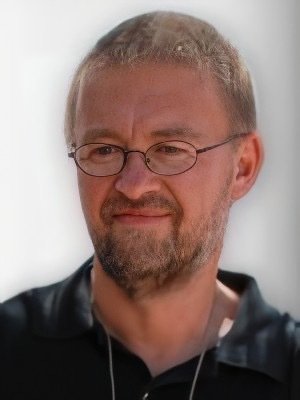At the ISIS frontline: Who’s who?
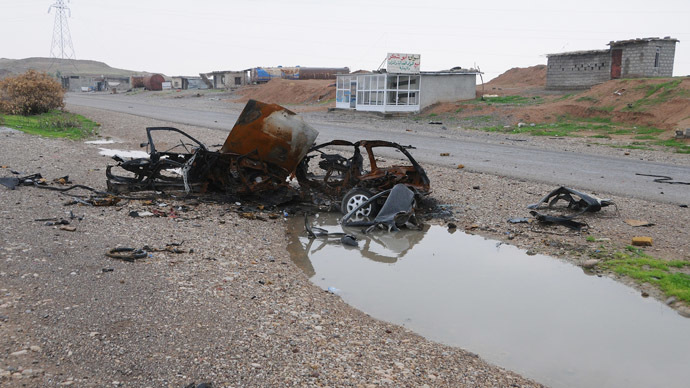
Amid guns, destruction and oilfields, journalist Andre Vltchek journeyed through the scorched land of Iraqi Kurdistan. On the way, he spoke with desperate teachers, an American-trained colonel and a nuclear physicist about life after ISIS.
The weather is gloomy; it is drizzling. After leaving Erbil, the capital of the Kurdish Autonomous Region of Iraq, military and police checkpoints, both large and small, are appearing like ghosts. They stand on both sides and in the middle of an old, dilapidated motorway, built during the Saddam Hussein’s years.
“We can’t slow down, unless the guards order us to stop,” explains my driver, as we pass by the mountains of sandbags and black muzzles of machine guns. “They have orders to shoot without warning.”
We don’t stop, but I photograph whenever possible, even through the windshield.
We are driving on the road that is leading to Mosul, the city that was taken by ISIS in June 2014.
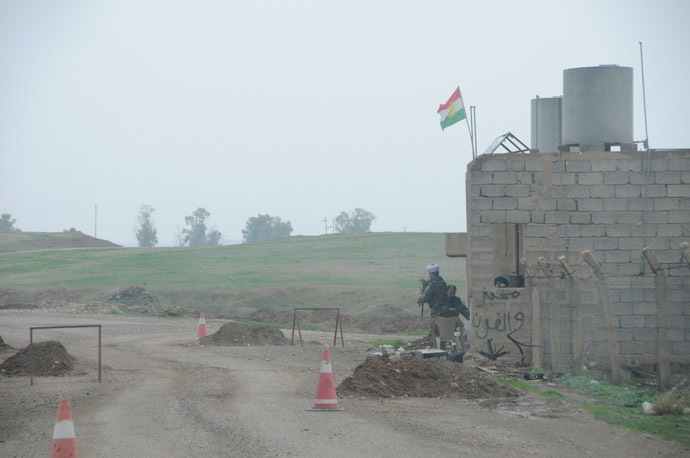
My driver is scared. The entire region is tense and Erbil is no exception. On November 19, a car bomb exploded in front of the governor’s office, killing at least six people and injuring dozens. Almost immediately, the Islamic State (IS, formerly ISIS/ISIL) took responsibility, claiming that its aim is to spread insecurity in Kurdish, pro-Western, northern Iraq.
There is also increased nervousness in and around the city of Kirkuk, which sits on tremendous oil deposits, and which is for several months now governed by both the Kurds and the Iraqi government in Baghdad.
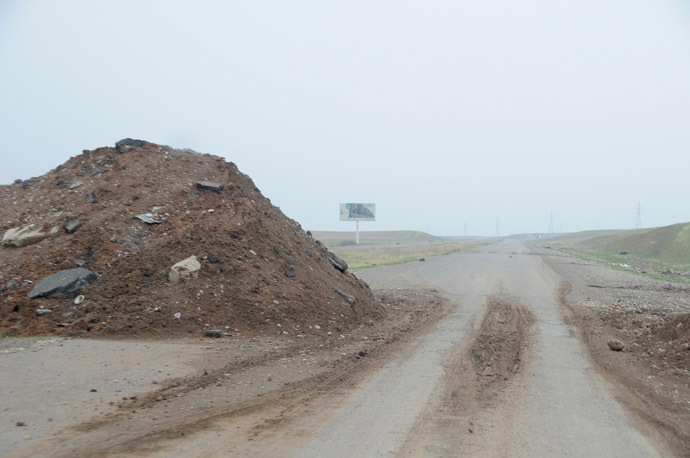
As our car literally flies over the bumps and potholes, to the right, barely visible, stand huge oil-drilling installations and refineries belonging to KAR, the Kurdish oil company. The refineries’ flames burn confidently, and there are countless tanker trucks with Turkish license plates driving and parked all along the main and secondary roads.
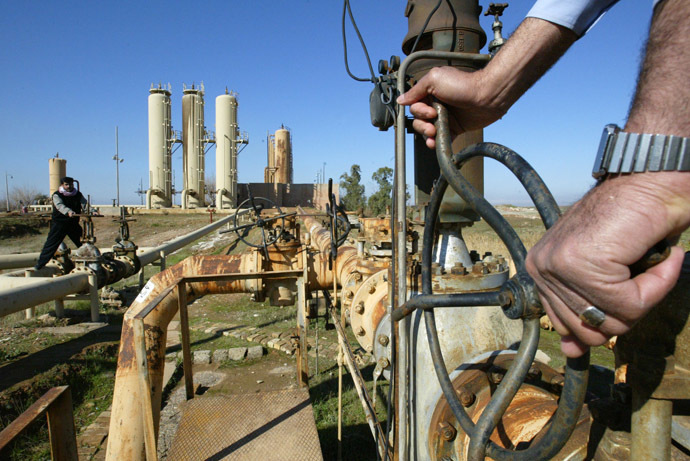
One day earlier, I spoke to several local residents and teachers at dilapidated villages and schools near the oilfields. They were disappointed and angry, and the lament was almost uniformed: “Corrupt officials and business people get tens of millions of dollars. Westerners get even more. But the local people receive only empty promises.”
We are soon passing the town of Kalak, also known as Khabat. This used to be the major checkpoint; this is where the refugees from Mosul used to stream to the Kurdish region, by thousands a day, after the IS offensive.
Soon after, there is one huge checkpoint, which ends with a wall made of concrete blocks. That is the end of the motorway. All around are antennas and watchtowers.
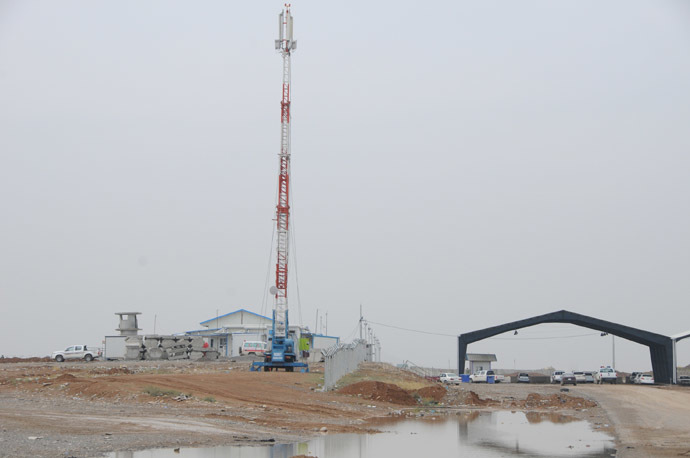
“We can’t go any further,” says my driver. “The IS is just a few kilometers from here. Nobody can go any further.”
But I have everything arranged. From the post I go further in a Toyota Land Cruiser driven by a Kurdish battalion commander of the Zeravani militarized police force (part of the Peshmerga armed forces), Colonel Shaukat.
We drive towards the massive concrete wall, and I realize that there is a small tunnel for military vehicles. We pass through it, and then we speed towards Mosul.
The road is totally empty and eerie. There are few machine guns scattered around the cabin of the 4WD. One is under my feet; I actually have to rest my shoe on it. Mechanically, I make sure it’s secured.
A few kilometers from the post, there is huge sand wall, then, little bit further, another one. The walls cut across four lanes of the motorway, leaving only one narrow passage.
“This used to be the border between us and the IS,” explains the colonel. “You can see how we are gradually pushing them further and further back, towards Mosul.”
War mementos dot highway
“This car blew up; exploded by a suicide bomber,” the colonel continues. “The IS also detonated the tanker truck over there, as we were forcing them towards Mosul and the hills.”
Suddenly, the road ends. There is a river and totally wrecked bridge.
“The Khazer River!” Colonel gets emotional. “They – the IS – were all over this area. They blew up the bridge... They destroyed my checkpoint, over there.”
It all looks desperate around here, totally ruined. But there is a new military bridge, a metal one, just one lane wide. Few fighters approach us.
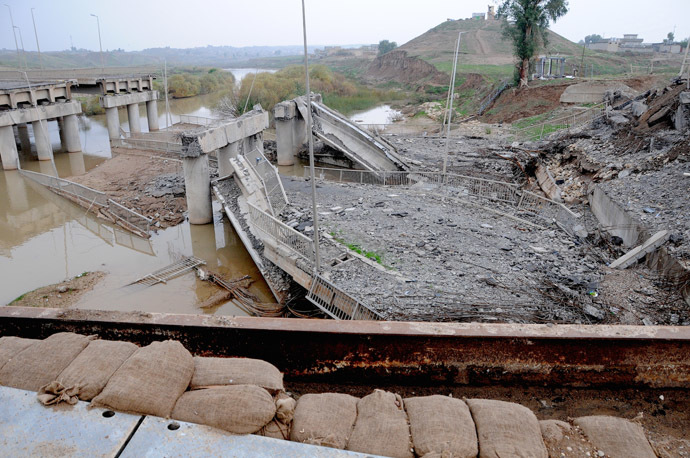
“We pushed the IS from here” I am told again.
“How far is Mosul?” I ask.
“Seven kilometers,” I am told. “At most 10.”
I don’t think so. I have a navigation system in my phone, and it appears that we are at least 15km from the doomed city.
“And where is the nearest position of the IS now?”
Kurdish military men are taking me to the provisory military bridge, and wave their hands towards the hills, south-southwest from our present position.
“They are there, on those hills. And they are still shelling us, day and night.”
“Mortars?” I wonder.
“Not those. Mortars would not make it that far. They are shooting artillery rounds - 155 calibers. They get that stuff from Iran.”
“Are you sure it comes from Iran?” I ask.
“We are told...” I don’t ask by whom.
There is a Sharkan Village next to the bridge, totally empty, depopulated.
The colonel comes back to me. “I will drive you through the villages,, he says. “We will make a detour. The US bombed the IS to the ground, here, on September 9. Then we attacked, and recaptured this territory. We lost some people... We lost Captain Rashid... We lost a soldier whom I knew – his name was Ahmad. The IS also killed many Peshmerga troops. Several soldiers died because everything around here was mined.”
We drive straight to that mess: Sharkan Village, then Hassan Shami.
“This is the village of the former Minister of Defense,” the colonel tells me. “This used to be his house.”
Almost everything is flattened, but the mosque stands. Bombs penetrated countless houses and there is debris all over.
“How many civilians died?” I ask instinctively.
“Not one,” I am told. “I swear! We provided great intelligence, so the US forces knew what to bomb.”
I wonder... House after house, all destroyed.
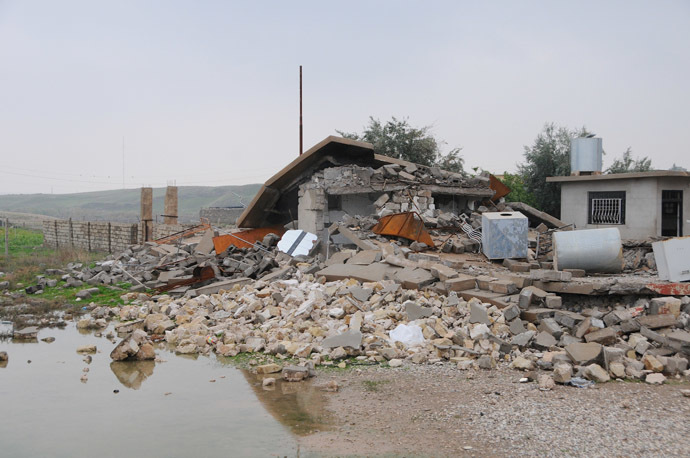
Kurdish soldiers keep emerging from the fog, as we drive through this desolate land. There are many different uniforms worn here, but everyone salutes the colonel. Some even come and kiss him.
No one lives in the villages, anymore. Villages were ‘liberated’, but destroyed. People were killed, or they escaped. Or maybe something else happened to the survivors. I don’t ask because I know I won’t be told.
“Do you also plan to liberate Mosul?” I ask.
“We are not going to take Mosul,” says colonel at one of the stops and subsequent military gatherings. Others nod in agreement. “We have nothing to do with that city... We just want to recapture what is ours.”
As we drive back to Khazer base, I am told that the IS contingent fighting around here is truly ‘international’. Recently, the Kurdish forces killed three Chechen fighters, four Afghans, two Germans and two or three Lebanese.
I suddenly realize that the colonel speaks perfect English, something very unusual in this part of the world. And he only identifies himself with one name.
“Colonel Shaukat,” I ask, “where did you learn to speak English so well?”
He gives me one big and bright smile, answering “In the United States and in the UK. I spent two years in the UK and 14 years in the US, where I was trained. I was also trained in Austria...”
“Where exactly were you trained in the US?”
“In North Carolina.”
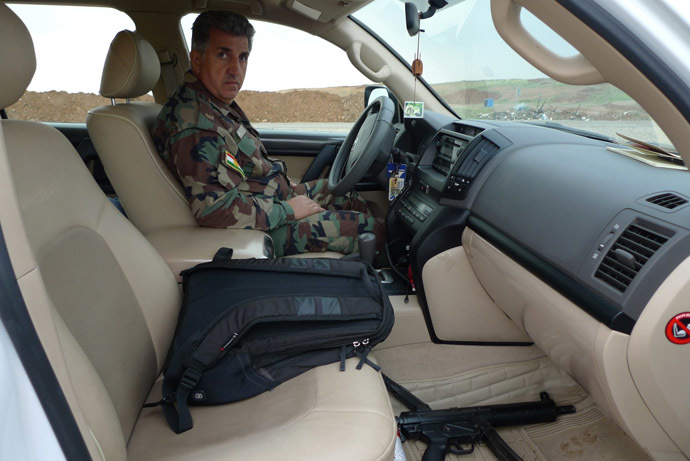
At the base, some 10 Kurdish officers and I sit on rugs. I pass my business cards, but the colonel only gives me his phone number. “No time for internet, but come back anytime! We like real war correspondents here.”
I am interviewing two doctors in Mosul, long-distance, as we drive back to Erbil; the mobile phones are still working:
“The IS don’t kill anymore,” I’m told. “Those who had to die are already dead. Now you smoke, and they cut off your finger. You work during prayer time and they punish you. They killed Shiite Muslims, Kurds and Christians... They had their list of people to murder... Now Mosul is screaming from pain: we are out of medicine, milk formula, diapers, food...”
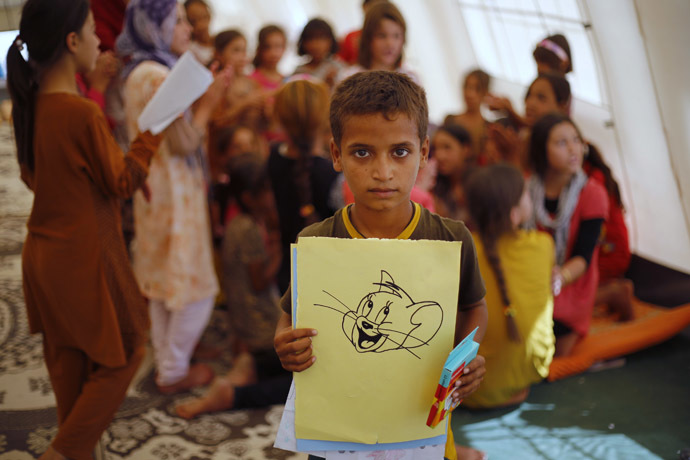
In the evening I am having a cup of tea with an old scientist, a nuclear physicist, Ishmael Khalil, originally from Tikrit University, now a refugee. We are in the ancient tearoom in the center of Erbil.
“All that I had was destroyed... I have no idea what is left of my university... Western allies supported the IS: Saudis, Qataris, and Turks. Americans are the main reason for this insanity – for total destruction of Iraq. Not just me, ask any child and you will hear the same thing... We all used to belong to a great and proud nation. Now everything is fragmented, and ruined. We have nothing – all of us became beggars and refugees in our land,” Khalil says.
The statements, views and opinions expressed in this column are solely those of the author and do not necessarily represent those of RT.
The statements, views and opinions expressed in this column are solely those of the author and do not necessarily represent those of RT.
